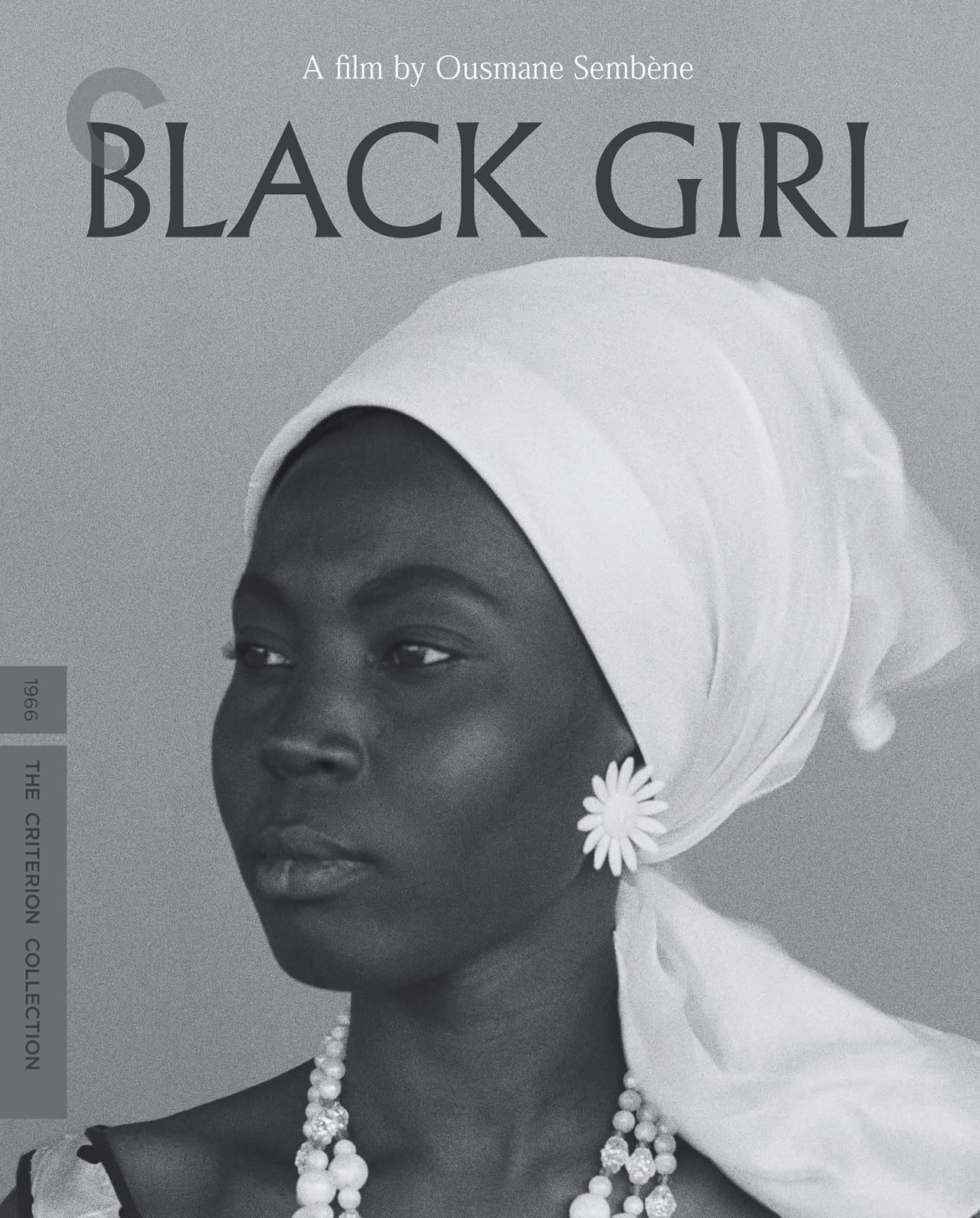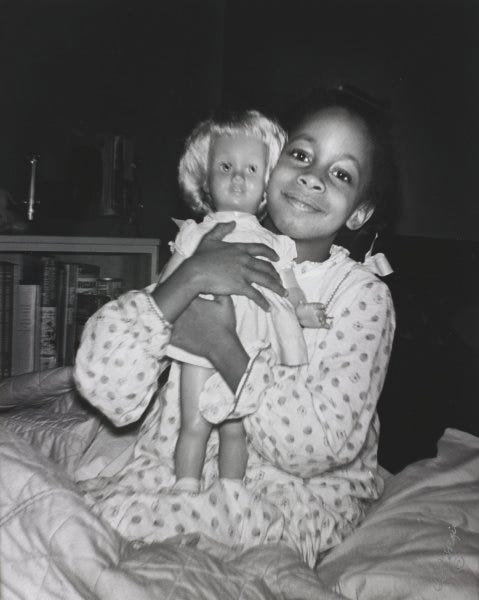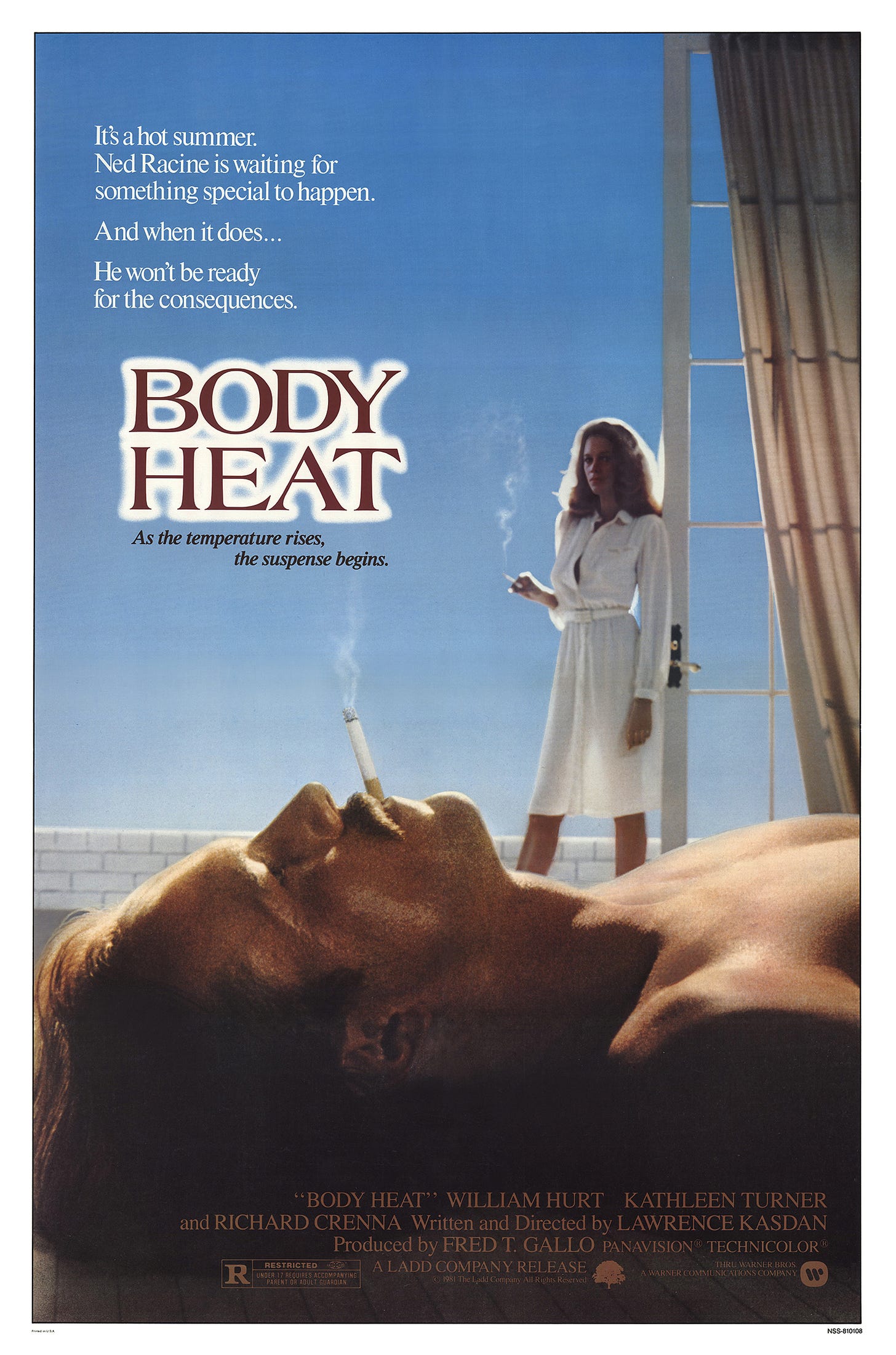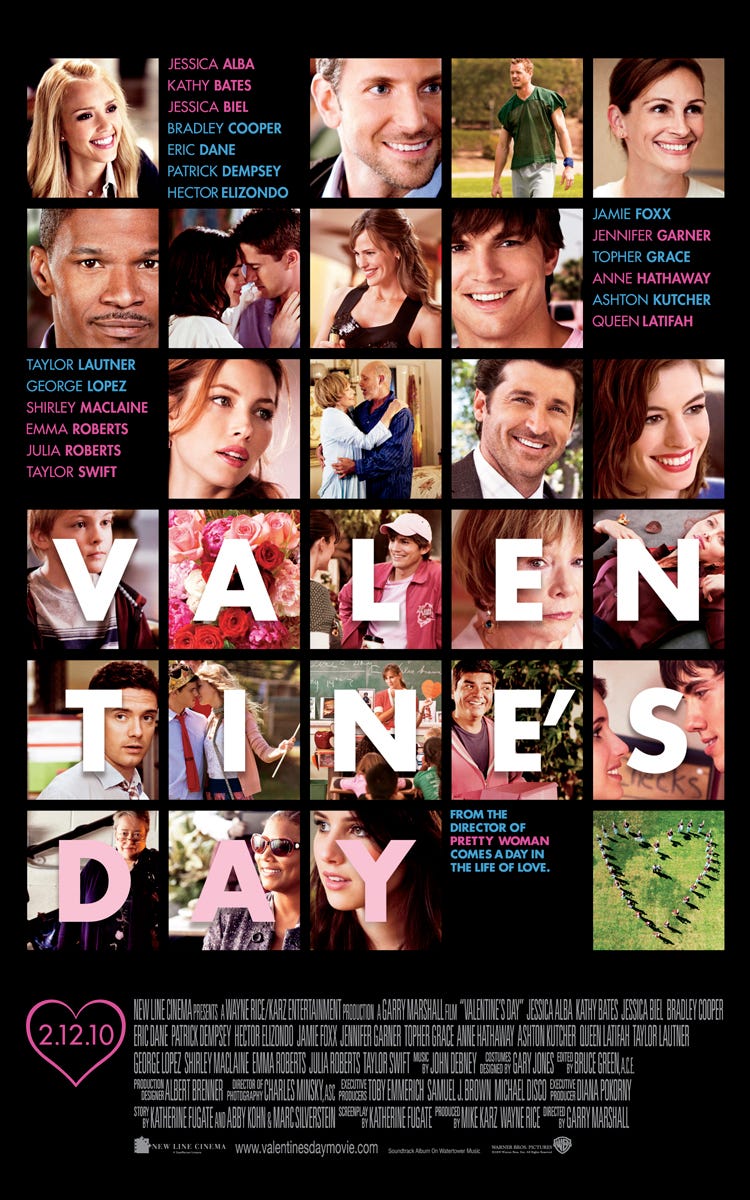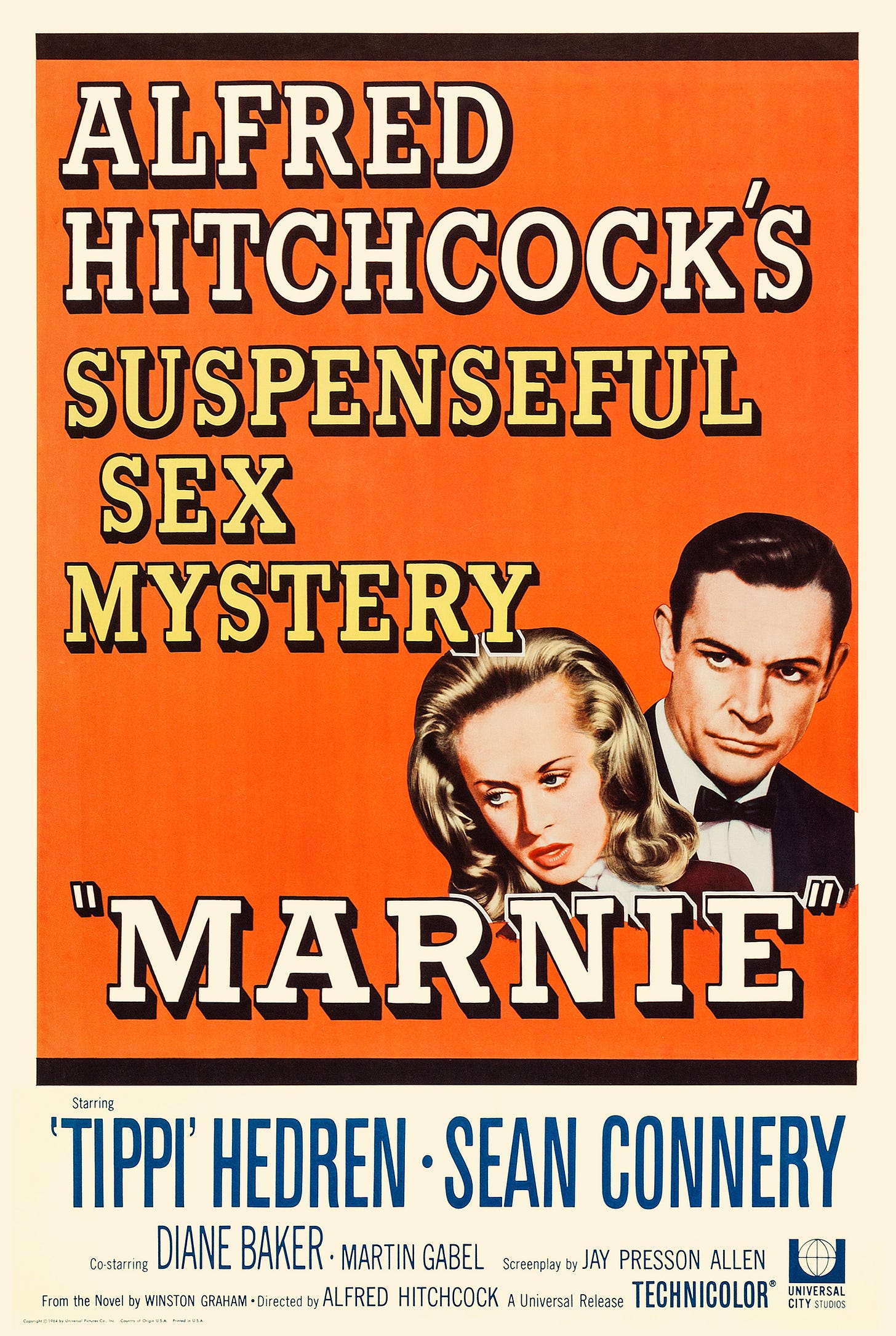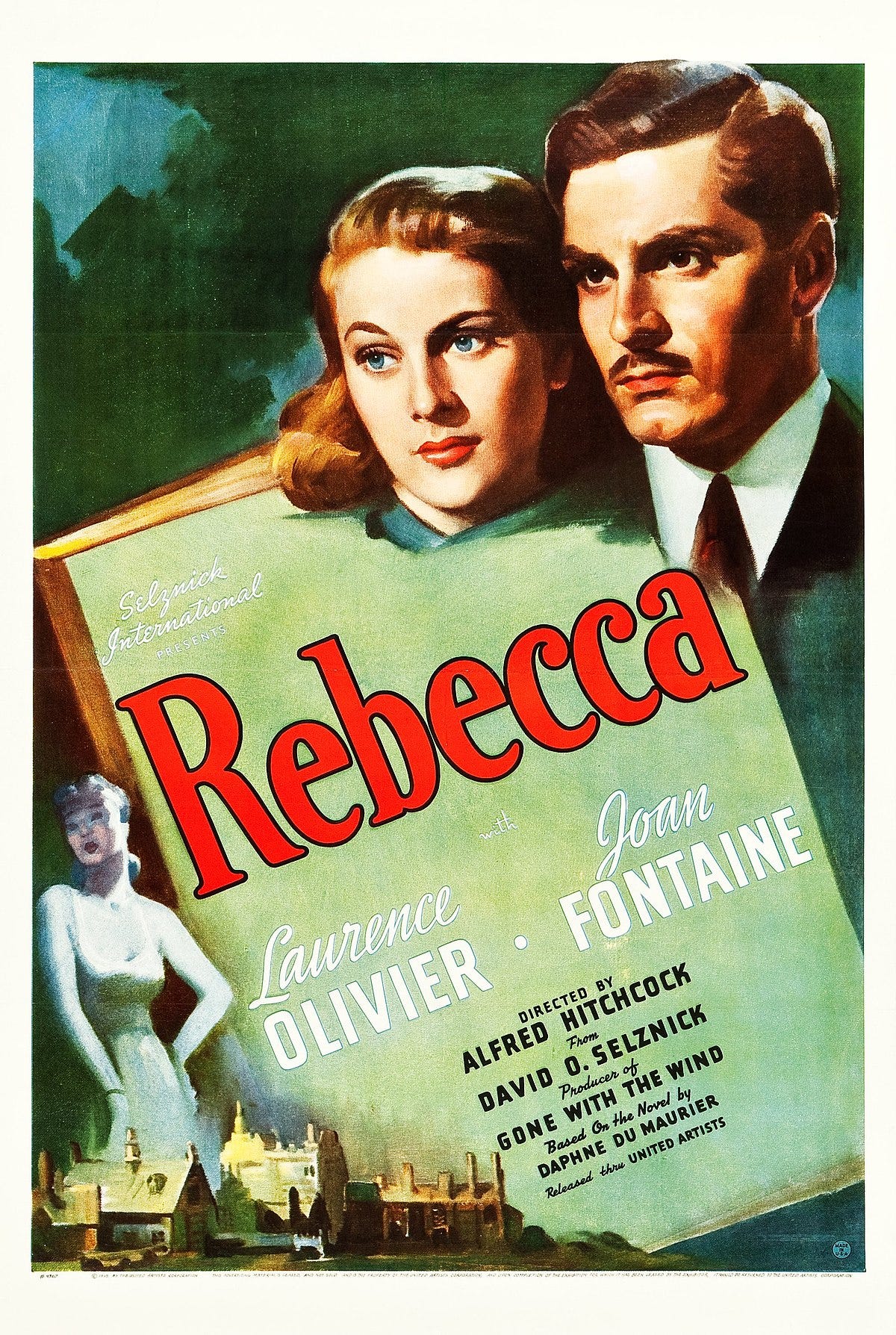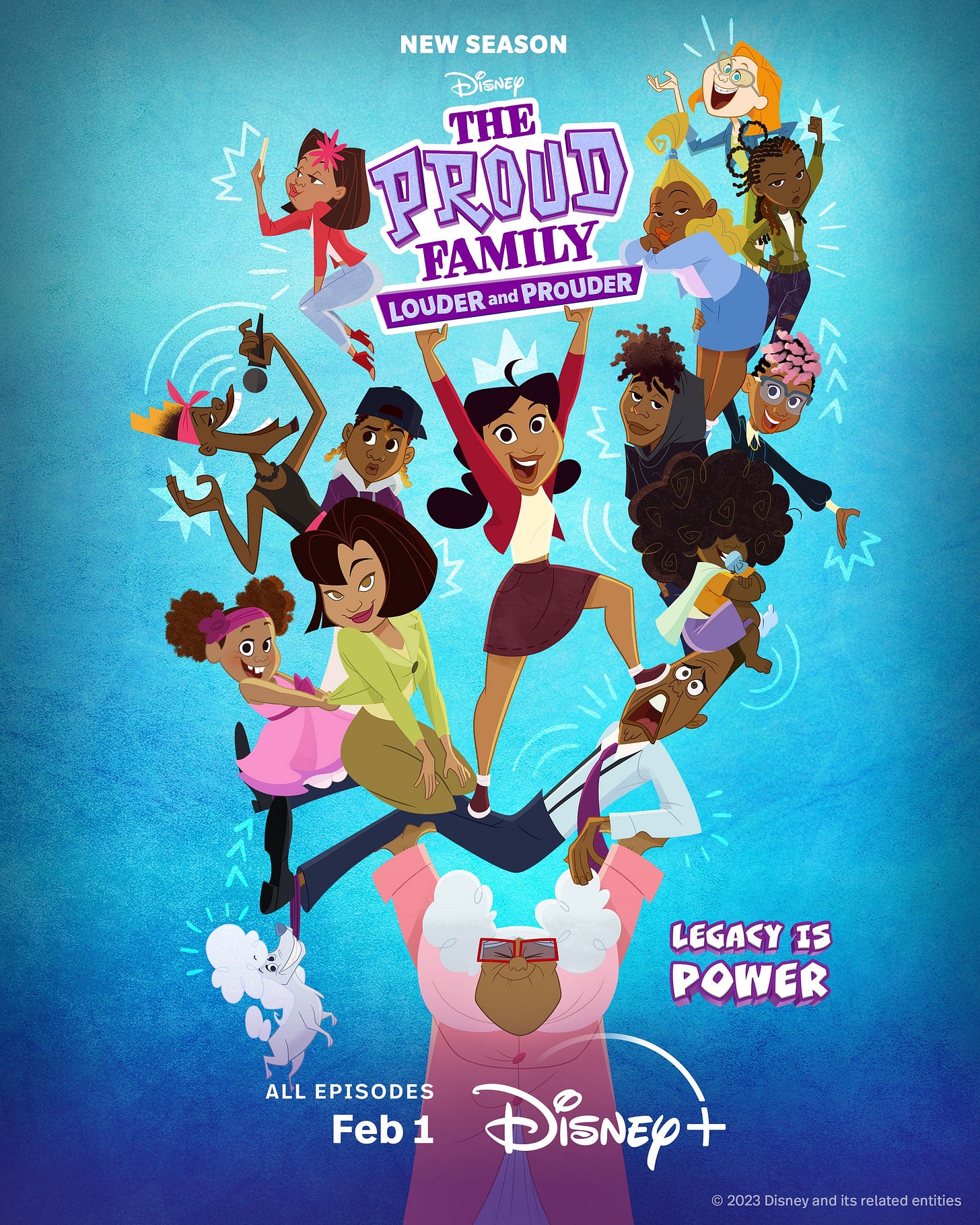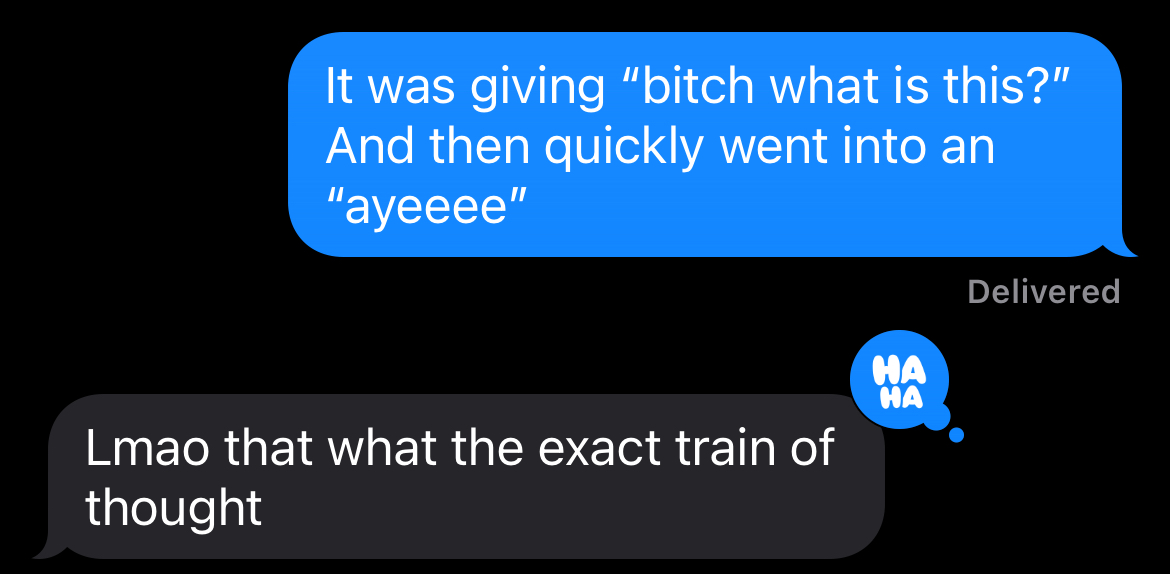Watch + Play List | February 2024
classics, new releases, deep cuts, remixes plus a Hitchcock binge
Hi hello! I’m starting this series to share what I’m watching each month. This will eventually be for paid subscribers only but enjoy the first few months on me and please share if you end up checking any of these films, shows, or songs out. Below is the order in which the content is laid out:
Films Watched
Director’s Binge: Hitchcock (6 Films)
Shows Watched
Monthly Playlist
FILMS
The Woman King (2022)
I’m a little ashamed that it took me so long to watch this film. I have to do better! I’m not typically into movies with a lot of violence but something about watching Black women be super ripped warriors, beating [redacted]’s asses was so satisfying to watch. I also love the sentimental coming-of-age story that touched on repairing broken familial bonds, I feel like the marketing of this film could’ve focused a bit more on that than the epic fight scenes — this film was very much pushed as Braveheart for Black women but it was so much more than that. I know some people have issues with the lack of historical accuracy but it was clear that they weren’t trying to be a perfect retelling. It says “Inspired By True Events” on the poster, after all
Black Girl (1966)
I love a vintage film especially ones with Black protagonists because there are so few. This film has been on my Letterboxed watchlist for a while. What finally made me decide to watch it is that I had a dream about the woman on the cover of the film (Senegalese actress Mbissine Thérèse Diop who is still alive and kickin’). The image is so striking to me, like wow how does someone just look like that? This film follows a Senegalese woman who seeks out a job as a nanny and is hoodwinked into following the family she works for the the French Riveria to be their maid, which was not in her job description and not in her plans for starting a new life in France. The film’s antagonist is her boss who is unsurprisingly a Karen. It made me think about a friend of mine who has worked in the homes of wealthy white people who said that it is often the wife who is more antagonistic than the husband, that is exactly what happened in this film. The fact that it’s still relevant nearly 60 years later is — well, something.
4 Little Girls (1997)
I watched this as a reference film for the documentary I’m currently developing though what initially made me interested in watching this film was visiting Spike Lee’s exhibit at Brooklyn Museum. The exhibit featured a photo of Denise McNair (one of the four little girls who was killed in the 16th Street Baptist Church terrorist attack) holding a baby doll, that her father took shortly before her death and Lee included in the documentary.
I could not stop looking at this photo, and thinking about everything that it symbolized— the era, Denise’s innocence, the reality of being a little Black girl in a white supremacist world but still finding moments of joy anyway. Spike humanized these girls and the experiences of their loved ones in the most poignant way.
Alma's Rainbow (1994)
Alma’s Rainbow follows Rainbow, a teenager living with her cosmetologist mother, Alma in Brooklyn with dreams of becoming a dancer. When Rainbow’s childless auntie Ruby visits after spending time performing in Europe, Rainbow’s ambitions grow and she begins to rebel against her strict anti-show biz mom. This was a very cute coming-of-age film that I will likely revisit but I’m also sad I’m just now discovering it. If you know any deep-cut Black coming-of-age films like this, drop some in the comments.
Broken Flowers (2005)
I mentioned this in a recent newsletter so I won’t rehash it but I just loved the messiness of it all.
American Fiction (2023)
I’m getting into Erasure soon and I also have the script for this film so I can do an in-depth analysis but the long and short: loved the cast and performances, had a few cackles along with some side eyes, the pacing felt choppy, the themes in the story felt peripheral, and it will not win Best Picture at the Oscars but is a good contender for Best Adapted screenplay. I also think that they shouldn’t have set my expectations so high by marketing it as the best film of the year.
Crossroads (2002)
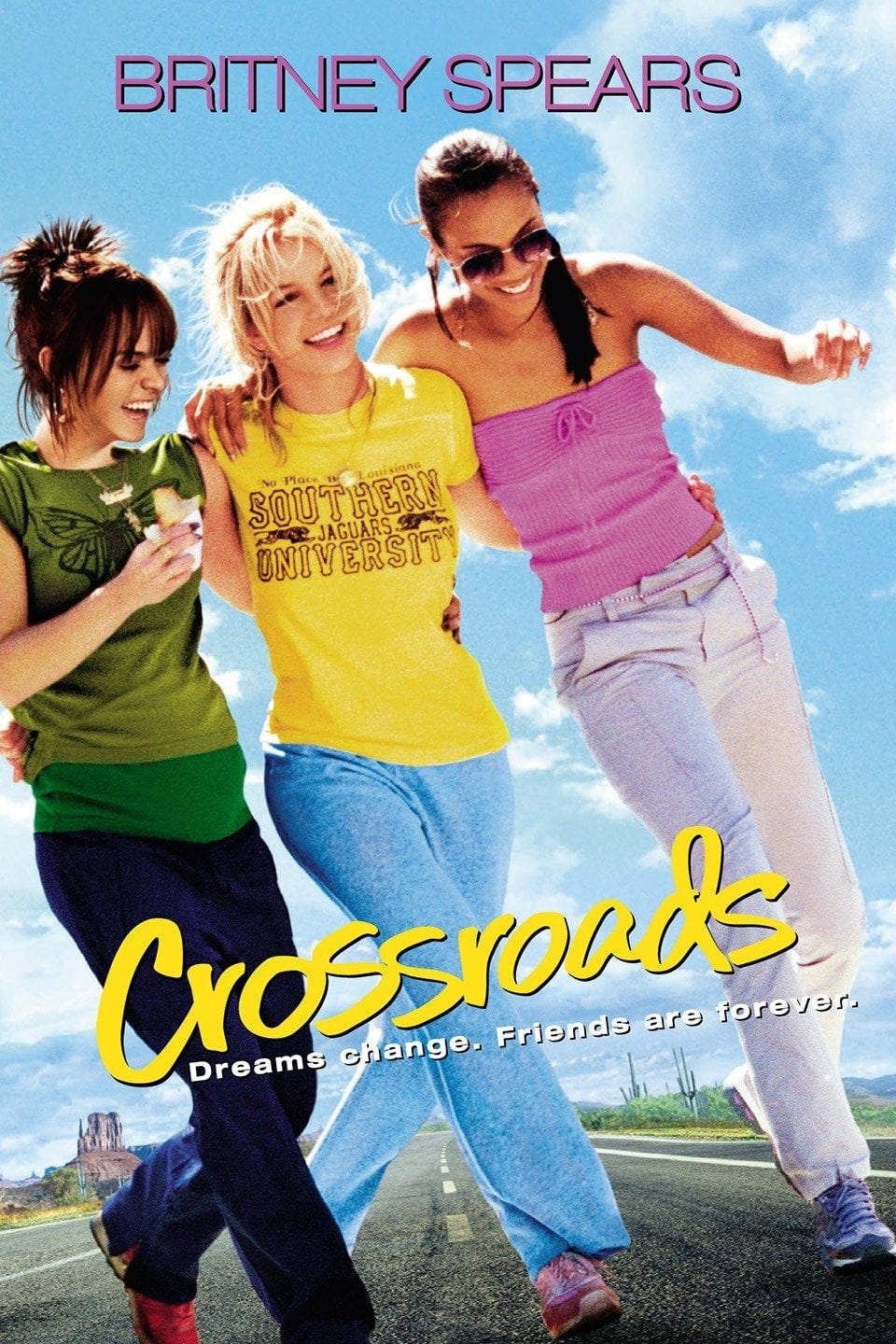
I watched this for the first time since I was a teenager, and wow what a difference 20+ years makes. Crossroads has all the elements of a good teen film, a defiant road trip, a cast of characters who have nothing in common, fun songs, and a little drama but it did not hit the same way as an adult, which is fine. I really thought Britney ate up that karaoke scene when I was a child but at my current big age, everything felt so forced. Zoe Saldaña playing a southern Black woman slightly irritated me (mostly due to the accent because she was much more tolerable in From Scratch. She and I will have beef FOREVER though), and poor Taryn Manning has been typecast for 20+ years. The story itself was fine (penned by thee Shonda Rhimes) but the direction gave a made-for-tv movie. But, it’s okay because a lot of legends have a not-great but cult classic moment, that’s why we have Glitter, Double Platinum, and Carmen: A Hip-Hopera.
Body Heat (1981)
I added this to my watch list after listening to You Must Remember This’ Erotic 80s series. If you love a good neo-noir with lots of twists and turns, this one is for you. The film follows Matty, wife to a wealthy Florida businessman who has an affair with a shady lawyer who plots to kill her husband so they can take his money and run off together. Everything is so hot, both physically and literally. Lawrence Kasdan does an excellent job conveying this heat through lighting (lots of red), and shot composition.
The Silent Twins (2022)
Based on the true story of June and Jennifer Gibbons, twin sisters living in a mostly white community in Wales during the 1970s and 1980s. The Gibbons twins only speak to one another, but in the privacy of their bedroom, they are expressive and write deeply imaginative stories together. Their refusal to speak to anyone resulted in them being separated into boarding schools and eventually institutionalized at a mental health facility after going on a crime spree that included committing arson. This story was sad, eery, and whimsical (a lot of wool stop motion was used to retell the stories the twins wrote and to get into their inner worlds). The film was deeply lacking in context though, we don’t hear much from their family, the 11 years they spent institutionalized did not feel sufficiently paced, and there is just one scene that chronicles the traumatic racism the twins endured. However, the performances by Letitia Wright and Tamara Lawrence were excellent.
Valentine's Day (2010)
Chile, I don’t know why I watched this movie. I just needed some fluff and that’s exactly what it was (and why would I expect anything different from Garry Marshall?). With an ensemble cast, a series of vignettes based in the same city, formulaic plots, and every romcom cliché you’ve heard of, you’ve seen this movie before even if you haven’t seen it before.
DIRECTOR’S BINGE: HITCHCOCK
Ranked in order of favorite to least favorite.
1. Marnie (1964)
Marnie is a woman with a dark past and extreme aversion to men who seduces and schemes her employers out of their money. When she applies for a job with Mark, she’s unaware that he is onto her game and blackmails her into marrying him. Now, there is some cringiness in this film (like all Hitchcock films tbh) but what I like about it is that it’s not so much about her being a thief, there is no mystery about it because we get that out in the open with the first minute of the film. The film is more about a woman with deep-seated traumas that influence her anti-social behavior and we get to the bottom of it during a flashback scene that had my mind going in a million different directions. This film features some of Hitchcock’s classic motifs, the use of the color red, unreliable narrators, and toxic/misogynist romance. I didn’t learn until after watching this film what Tippi Hedren endured at the hands of Hitchcock, it is extremely unfortunate that such a compelling performance happened while she endured abuse.
2. Dial M for Murder (1954)
The second collaboration between Hitchcock and Grace Kelly (and honestly, their second best behind Rear Window), Dial M for Murder is one of the most “YOU THOUGHT” films in Hitchcock’s catalog. When ex-tennis pro Tony blackmails an old college acquaintance into killing his wealthy wife in fear that she will leave him for the man she’s cheating with and take the money with her, shit hits the fan real bad. The majority of the film takes place on one set (an apartment) but the blocking and camera technique kept it from boring me to death (unlike Rope which I could not even get through 10 minutes of).
3. Rebecca (1940)
To summarize the plot of this film, I’m going to use a Tinashe lyric:
“Sheesh, new fashion, R.I.P. your last bitch”
Unlike Marnie where the title of the film is the protagonist’s name, Rebecca is named after a dead woman whose husband has remarried. Imagine Portia from White Lotus Season 2 hitting it off with a wealthy aristocrat and leaving Tanya at the resort in Sicily to go marry him, that is basically how the film starts. This newlywed wife (we never get her name but she is credited as Mrs. de Winter), is a sad little pick-me who is being groomed by a man who seems as if he can’t get over his deceased wife but actually despised her as it was a marriage of convenience. The new Mrs. de Winter is tasked with dealing with trying to elevate her style to reflect the new class she’s in, her hating-ass housekeeper who preferred the original Mrs. de Winter (and may have been in love with her), and trying to get her new husband (whom she barely knows) to open up to her. Shit gets real though when we learn that Rebecca may have died under illicit circumstances. This is the only film that Hitchcock won a Best Picture Oscar for and it makes sense given so many of his films that followed had this same formula in a different font1.
4. Shadow of a Doubt (1943)
When Young Charlie is bored with her suburban California life, she has the bright idea to call her Uncle Charlie (whom is named after) for a visit from the east coast. Unbeknownst to her, Uncle Charlie is already on his way because the police are looking for him. Throughout the film we see Young Charlie go from idolizing her uncle to wondering if he is who is says he is. This one was a little strange and rife with plot holes, and there also were some incestuous undertones, like girl I get it you love your uncle, but relax.
5. Frenzy (1972)
Frenzy marks Hitchcock’s entry into the New Hollywood Era. Set in London, a serial killer who kills women with neckties is on the loose and the wrong man has been accused. The most interesting thing about this film is seeing how it allowed Hitchcock to employ his same misogynistic tropes but in a much more explicit way. This film contains nudity, profanity, Black extras (I was genuinely shook to see a Black person in a Hitchcock film, even if they were only backgrounds), and a very disturbing SA scene that I had to fast-forward through. It feels like everything he probably wanted to do in the 1950s and 1960s but could not. The 70s allowed for more violence and vulgarity in films. It’s an interesting commentary on how artists reflect and adjust with the times, although his foray in New Hollywood would be short-lived, this was his second to last film.
6. To Catch a Thief (1955)
This is my least favorite Grace Kelly and Alfred Hitchcock collaboration. It tells the story of ex-jewelry thief John “The Cat” Robie who is being framed by a burglar who uses his same methods to steal from wealthy people who are vacationing in Monaco. Robie is being pursued by Frances Stevens, an oil heiress who knows about Robie’s jewelry thief history but doesn’t seem to care for some reason. Robie spends the film trying to clear his name and halfheartedly entertaining Stevens’ advances. Unfortunately, the backdrop of the French Riviera is the most interesting thing about this film. Beautiful gowns.
SHOWS
Feud: Capote vs. The Swans
I wasn’t going to give this my time but I love a historical drama and mess so I couldn’t resist. This series focuses on Truman Capote and his “Swans” (New York high society WASPs he associated with), his essay La Cotê Basque 1965, (an article that was an excerpt from his novel Answered Prayers that put his beloved Swan’s business in the streets) and the fallout that made him a pariah. The most scathing tea in the article was his thinly veiled detailing of Richard Paley, founder of CBS, cheating on his wife Babe Paley with Happy Rockefeller and getting caught because Happy got her period stains their expensive bedding and furniture. I started listening to the audiobook that this series is based on but I got bored. I don’t care so much about the lives of these elitist WASPs as I do seeing the journey of Capote’s self-sabotage (he never did finish Answered Prayers). The series is well-cast and for the most part, it seems to be self-aware of the classism and racism that exists in these kinds of circles. I have very ambivalent feelings about The James Baldwin episode (episode 5). On one hand, the actor who portrayed him did an excellent job, on the other hand, the notion of Baldwin coming to be some Magical Negro cleanup man after Capote was cast out by these wealthy Karens was a tad cringe.
The Proud Family: Louder and Prouder
I am typically anti-reboot but adore this show. It may be marketed as a kid’s show, but it was definitely made with millennials in mind. There are so many references, the Cheetah Girls’ outfits, “Molly, you in danger girl”, Professor Klumps, Debo, Oscar as The Fresh Prince of Bel-Air, and other references specific to our generation, it’s so fun!

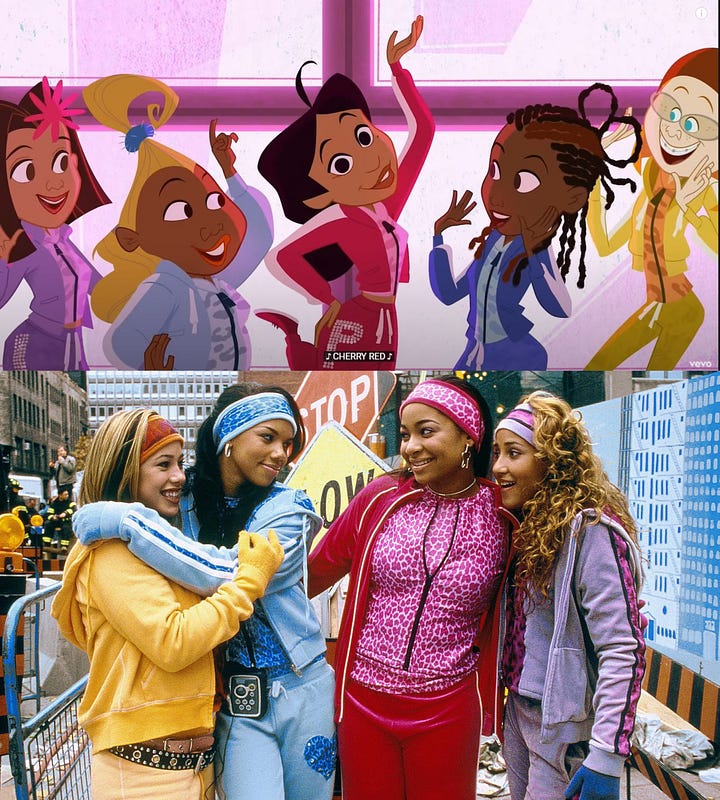


It’s socially aware and updated for the current period but they’re not overdoing it. Although I want Maya (voiced by Keke Palmer) to read something other than The Fire Next Time by James Baldwin and Between The World in Me by Ta-Nehisi Coates like dang, sprinkle in a little Angela Davis or something.
Abbott Elementary
The best network TV show is back! My favorite moment this season so far is the episode where they get Ava to stop being good at her job by playing Back That Azz Up, Mr. Johnson in the corner hitting the shoulders lollllll so good! I wanted Janelle James to throw some ass a little bit more but I get it, it’s ABC.
And finally, we’ve made it to:
PLAYLIST
I love all of these songs but the one that lives on a loop in my brain is Recorddeals by 1 9 0 5 and Former City Records. I love it so much that it’s always the first song that comes on my shuffle (is it because of the algorithm or because God knows my heart?) and I asked my cousin KaMia to record a reaction video to the song:
EXACTLY.
If you want to cultivate more joy in your life, make your favorite people send reaction videos to your favorite songs 10/10!
That’s it for this month! Let me know what recommendations you enjoyed.
Catch me on these digital streets.
Watch My Short Film “One Of The Guys” 🎥
Instagram 🤳🏾
TikTok ⏰
Website 👩🏾💻
Merch 🛍️
💋 ✌🏾
With love,
LaChelle
Side note: I recently had an epiphany after seeing all of the Mea Culpa discourse that may shake the table but is Tyler Perry lowkey the Black Alfred Hitchcock? Not in terms of technique but the fact that they both have this thriller formula that their audiences eat/ate up. Hitchcock’s typically casts blondes who are either a killer or a thief or romantically involved with one, Perry casts gorgeous and exceptionally talented Black women actresses who are a woman scorned or being manipulated by a man in some way. Is that crazy? Don’t jump me!






